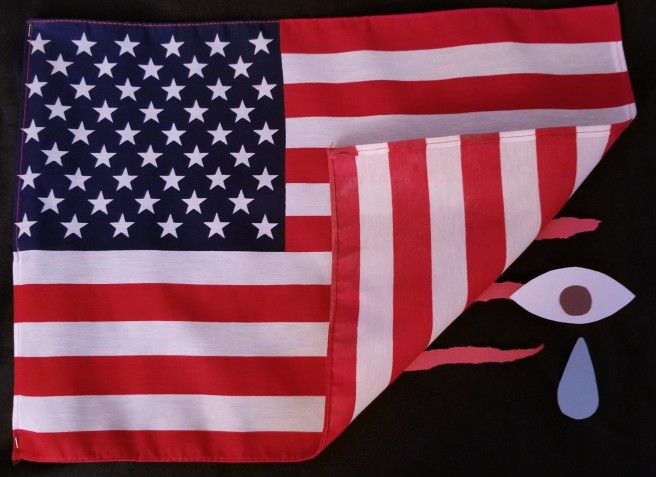
You cannot truly love that which you do not truly know.
Has a stranger ever told you that they love you? Or a passing acquaintance?
Now compare that to those words from a best friend, or a parent—someone who has seen you at your best moments and your worst. Someone who has experienced just about every facet of you—your kindness, your playfulness, your dedication, but also perhaps your impatience, your selfishness, your cruelty. To have at times admired you, but at other times been hurt by you, to have forgiven you, and never have given up on you—that is the one who truly loves you.
So what does it mean to love your country? Are we in love with an America that exists only in our minds? Do we love an America with a history of heroes, a nation that has always been right and just, or do we see America’s lofty ideals together with its checkered past?
I believe we have come to a time of reckoning—reckoning with the airbrushed American narrative, a narrative full of thanksgiving feasts and intrepid explorers instead of the violent and bloody erasure of indigenous peoples, a narrative full of successful immigrant stories rather than a history of exclusion acts and internment camps, and a narrative in which slavery wasn’t so bad after all. There are some wonderful principles that America stands for, ideals that the country was founded upon: democracy, liberty, justice, determination, public education for all, to name a few. But we MUST acknowledge the ways America has failed to live up to these ideals, in the ugly history of genocide, slavery, and racism, and the ways that legacy continues on today.
For to love an idealized version, a fantasized apparition of someone is vastly different from loving them. Love is seeing someone’s flaws, mistakes, and downright ugliness, and caring enough to grab them by the shoulders and say “I want so much better for you.” Love takes us as we are, but desires not that we remain as we are, but longs to transform us into something far more lovely.
Perhaps the recent wave of iconoclasm has been a call to shatter the facade that we call America, and to see and address the rot that lies beneath. Not to destroy the structure, but to build it stronger, truer to what it was meant to be. When the facade of perfection shows its cracks, there are two temptations: to defend and repair the facade itself at all costs, or to immolate or abandon the structure entirely in search of one that is commensurate to our capacity for wonder.
But love is not apathy, nor is it flattery. I think of Dietrich Bonhoeffer, a German pastor who had escaped to the US, far from the horrors of Nazi Germany. And yet he loved Germany enough leave the safety of the US, to go back and fight for the German people to wake up and see the blood on their hands, and to truly repent. He loved Germany enough to decry its evil and call it to a higher standard. This kind of love, this sort of patriotism, cost Bonhoeffer his life.
Will we be like Bonhoeffer, refusing to bow to blind nationalism, but daring to call a country it to live up to its name? To love a country is to love its people, to fight for their flourishing. Not a battle to defend an idealized illusion, but a fight to “defend the weak and the fatherless; uphold the cause of the poor and the oppressed. Rescue the weak and the needy; deliver them from the hand of the wicked” (Psalm 82:3-4, NIV), until this country becomes one in which all are affirmed in the “self-evident” truth that they are created equal in the image of God, equally deserving of life and freedom and justice*.
The Declaration of Independence was made on July 4, 1776, but it was not until the Treaty of Paris was signed on September 3, 1783, that America truly became independent. It was a hard-fought war—one might even say a revolution—that stood between the declaration and the winning of independence. In the same way, perhaps we are still fighting to become America, to grow more and more into who we say we are, a land of liberty and justice for ALL.
(*Black lives matter. Black lives matter because all lives matter to God. More thoughts on this to come, hopefully.)
Another great read that I didn’t manage to weave in:
The full text of Frederick Douglass’ “What, to the Slave, Is the Fourth of July?” speech, in which he calls 1852 America (and Christianity) to live up to its principles and purposes, a word that is in many ways just as prophetically relevant to us today.
